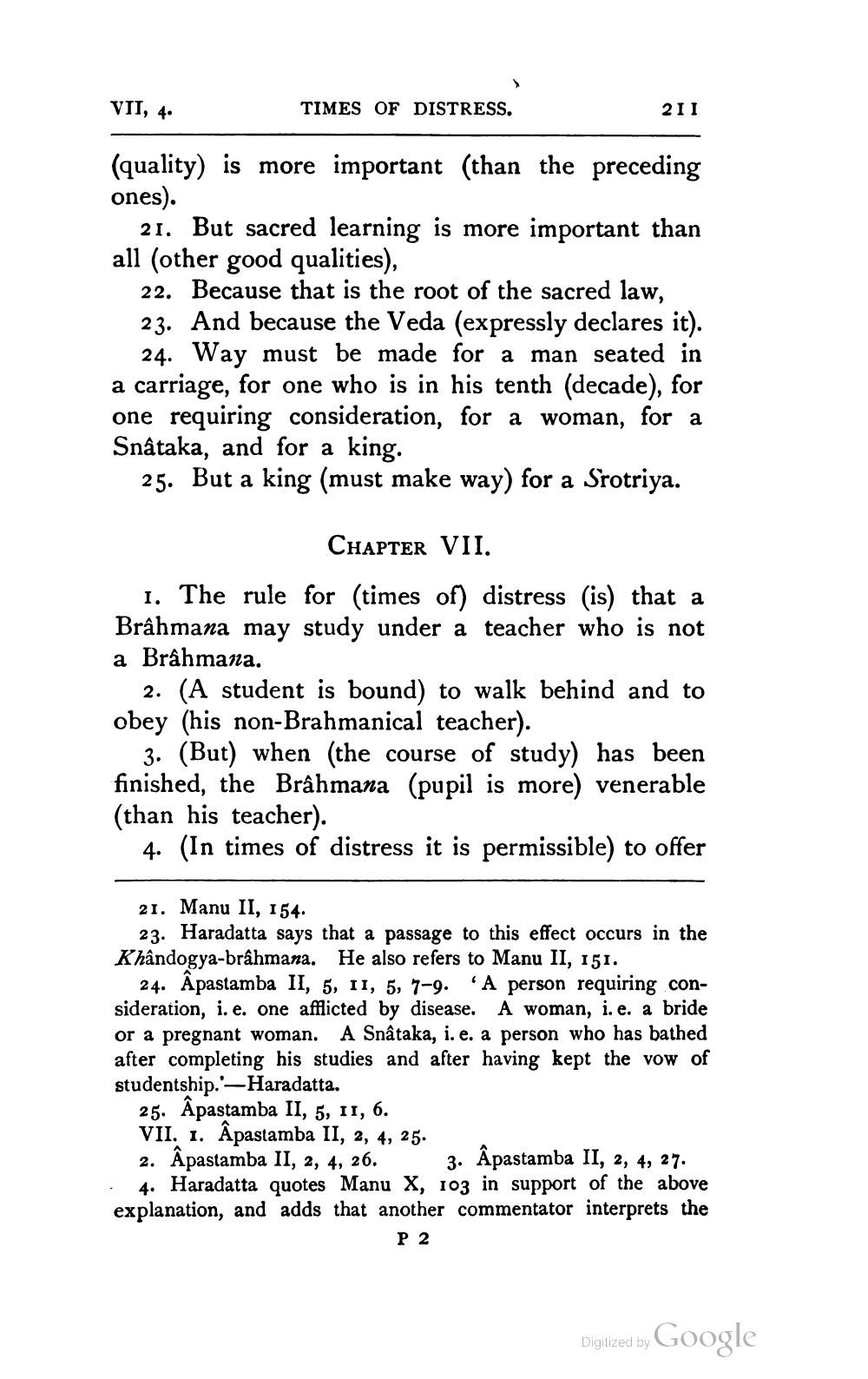________________
VII, 4.
TIMES OF DISTRESS.
211
(quality) is more important (than the preceding ones).
21. But sacred learning is more important than all (other good qualities),
22. Because that is the root of the sacred law, 23. And because the Veda (expressly declares it). 24. Way must be made for a man seated in a carriage, for one who is in his tenth (decade), for one requiring consideration, for a woman, for a Snâtaka, and for a king.
25. But a king (must make way) for a Srotriya.
CHAPTER VII.
1. The rule for (times of) distress (is) that a Brahmana may study under a teacher who is not a Brahmana.
2. (A student is bound) to walk behind and to obey (his non-Brahmanical teacher).
3. (But) when (the course of study) has been finished, the Brâhmana (pupil is more) venerable (than his teacher).
4. (In times of distress it is permissible) to offer
21. Manu II, 154.
23.
Haradatta says that a passage to this effect occurs in the Khândogya-brâhmana. He also refers to Manu II, 151.
24. Âpastamba II, 5, 11, 5, 7-9. 'A person requiring consideration, i. e. one afflicted by disease. A woman, i. e. a bride or a pregnant woman. A Snâtaka, i. e. a person who has bathed after completing his studies and after having kept the vow of studentship.-Haradatta.
25. Apastamba II, 5, 11, 6.
VII. 1. Âpastamba II, 2, 4, 25. 2. Âpastamba II, 2, 4, 26. 3. Âpastamba II, 2, 4, 27. 4. Haradatta quotes Manu X, 103 in support of the above explanation, and adds that another commentator interprets the
P 2
Digitized by
Google




